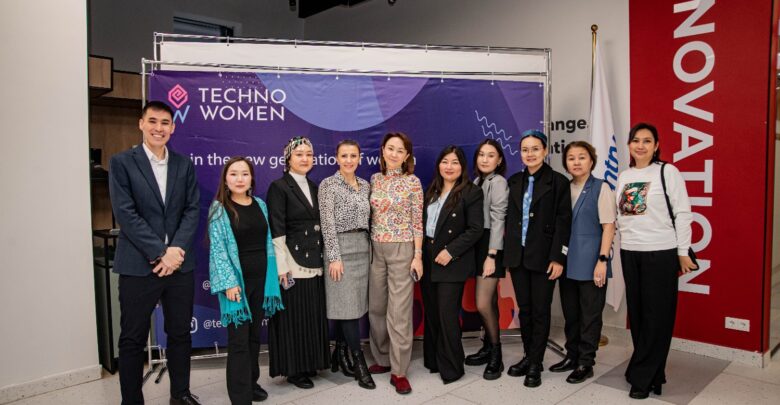Astana Hub is concluding the IT-Aiel 2.0 educational program. This program is being implemented jointly with the National Commission for Women’s Affairs and Family and Demographic Policy under the President of the Republic of Kazakhstan and the TechnoWomen NGO. The initiative aims to develop women’s digital skills and enable their professional growth in the IT sector, writes qandastar.kz
The project, which began in June 2024, has aroused great interest, with 5,200 women from all regions of Kazakhstan intending to master new skills. Of these, 3,084 participants have started training and are actively mastering No-code programming, freelance basics, e-commerce and other in-demand skills. Currently, 62 participants have successfully completed their studies and received the necessary knowledge to start a career or start a business.
The program covered women over 18 years of age, including the unemployed, women on maternity leave, students and young entrepreneurs. The majority of participants were registered from the cities of Astana, Almaty and the Almaty and West Kazakhstan regions.
The second lek has a number of successful initiatives. In particular:
Sagilya Sagidan from Kyzylorda developed an educational platform called EdKids. This resource provides children with quality education and helps them develop their skills from an early age. The platform is focused on interactive learning and is accessible to a wide audience.
Asel Karazhan from Aktobe created a website for the AKM Education school, which teaches mental arithmetic. This school helps children and adolescents develop analytical thinking, improve memory and attention, and offers modern teaching methods.
Meruert Zharylkasynova from Astana launched the Qadam mobile application, which provides information on grants for businesses and startups in Kazakhstan. This product allows entrepreneurs and startup owners to easily search for information about available grants and support programs and apply for them.
Aidana Sembayeva from Almaty developed a chatbot on Telegram to automate interaction with clients and employees. The chatbot solves tasks such as answering frequently asked questions, processing requests, and internal communications, increasing the efficiency of business processes.
It is worth noting that in 2023, more than 2,000 women from 17 regions of Kazakhstan were trained under the first wave of the IT-Aiel program. 50 participants created their own IT products, such as websites and applications, significantly improving their career potential.
The IT-Aiel project demonstrates that digital education is a powerful tool for empowering women, allowing them to develop their skills and make a significant contribution to the IT industry of Kazakhstan.
For reference:
The activities of the National Commission for Women’s Affairs and Family and Demographic Policy under the President of the Republic of Kazakhstan are aimed at attracting women to the digital economy and providing them with productive employment. With the support of the National Commission, projects such as “TechGirls” and “IT-Aiel” are being implemented, aimed at attracting girls and women to the IT sector and supporting women’s startups. At the 67th session of the UN Commission on the Status of Women, held in New York in March 2023, Kazakhstan’s best practices in the field of digitalization and the development of new technologies with the participation of women were presented.
Astana Hub is the largest technopark in Central Asia, whose activities are aimed at creating and developing an ecosystem for IT businesses, training IT specialists, and supporting startup projects. Today, more than 1,500 IT companies are registered in the technopark, including more than 400 with foreign participation. They are provided with business development and scaling programs, special tax and visa conditions, information and educational support, material infrastructure, and more.
Since 2022, the non-profit organization “TechnoWomen” has been working to increase the number of girls and women in information technology and other technological industries. The organization actively supports and develops women’s leadership. Its activities are aimed at changing the situation in the industry and creating equal opportunities for all participants.
